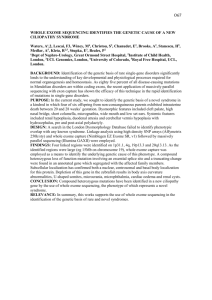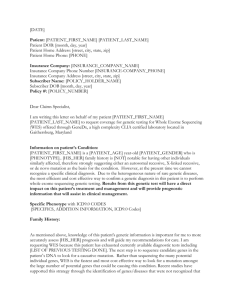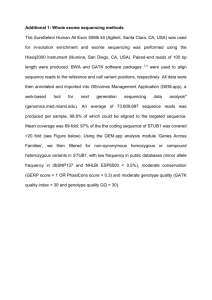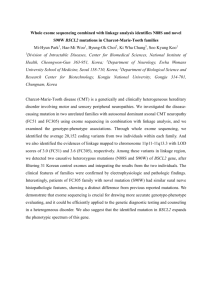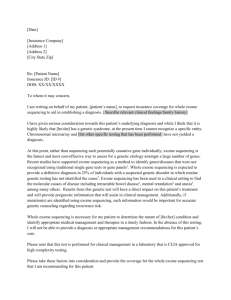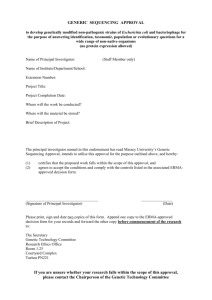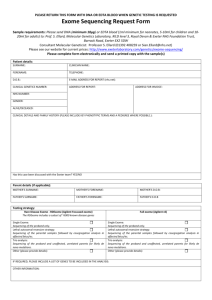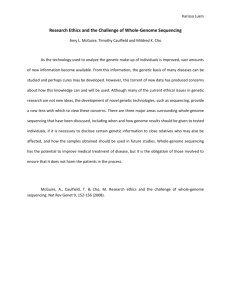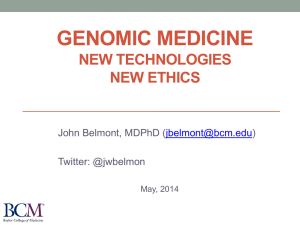XomeDx - GeneDx
advertisement
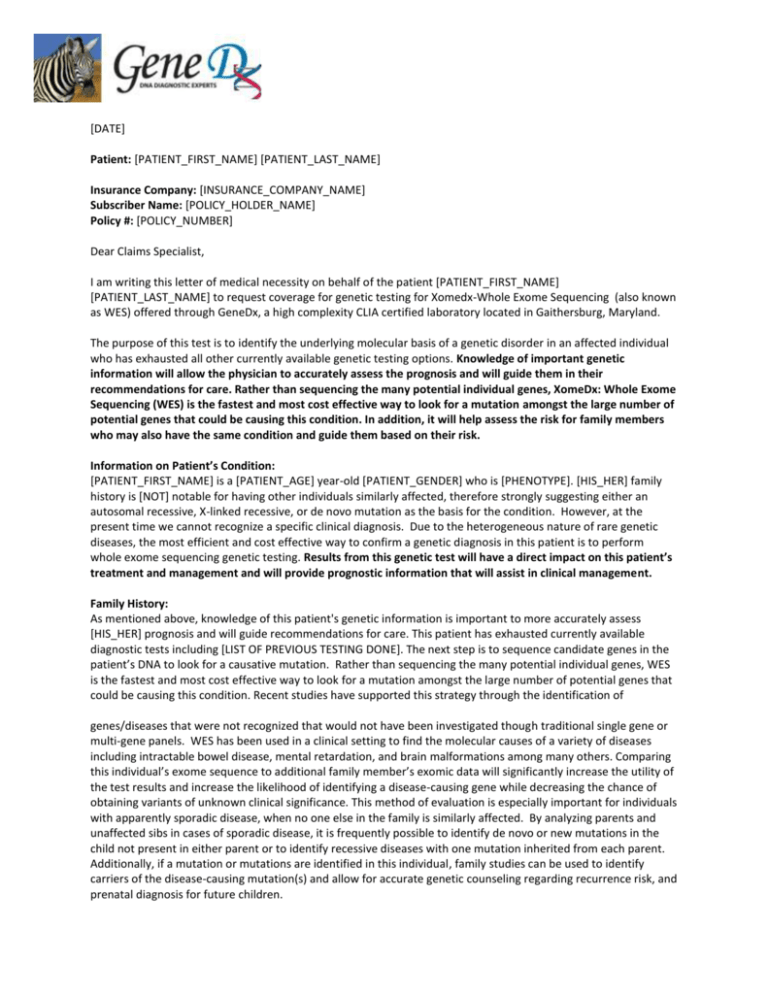
[DATE] Patient: [PATIENT_FIRST_NAME] [PATIENT_LAST_NAME] Insurance Company: [INSURANCE_COMPANY_NAME] Subscriber Name: [POLICY_HOLDER_NAME] Policy #: [POLICY_NUMBER] Dear Claims Specialist, I am writing this letter of medical necessity on behalf of the patient [PATIENT_FIRST_NAME] [PATIENT_LAST_NAME] to request coverage for genetic testing for Xomedx-Whole Exome Sequencing (also known as WES) offered through GeneDx, a high complexity CLIA certified laboratory located in Gaithersburg, Maryland. The purpose of this test is to identify the underlying molecular basis of a genetic disorder in an affected individual who has exhausted all other currently available genetic testing options. Knowledge of important genetic information will allow the physician to accurately assess the prognosis and will guide them in their recommendations for care. Rather than sequencing the many potential individual genes, XomeDx: Whole Exome Sequencing (WES) is the fastest and most cost effective way to look for a mutation amongst the large number of potential genes that could be causing this condition. In addition, it will help assess the risk for family members who may also have the same condition and guide them based on their risk. Information on Patient’s Condition: [PATIENT_FIRST_NAME] is a [PATIENT_AGE] year-old [PATIENT_GENDER] who is [PHENOTYPE]. [HIS_HER] family history is [NOT] notable for having other individuals similarly affected, therefore strongly suggesting either an autosomal recessive, X-linked recessive, or de novo mutation as the basis for the condition. However, at the present time we cannot recognize a specific clinical diagnosis. Due to the heterogeneous nature of rare genetic diseases, the most efficient and cost effective way to confirm a genetic diagnosis in this patient is to perform whole exome sequencing genetic testing. Results from this genetic test will have a direct impact on this patient’s treatment and management and will provide prognostic information that will assist in clinical management. Family History: As mentioned above, knowledge of this patient's genetic information is important to more accurately assess [HIS_HER] prognosis and will guide recommendations for care. This patient has exhausted currently available diagnostic tests including [LIST OF PREVIOUS TESTING DONE]. The next step is to sequence candidate genes in the patient’s DNA to look for a causative mutation. Rather than sequencing the many potential individual genes, WES is the fastest and most cost effective way to look for a mutation amongst the large number of potential genes that could be causing this condition. Recent studies have supported this strategy through the identification of genes/diseases that were not recognized that would not have been investigated though traditional single gene or multi-gene panels. WES has been used in a clinical setting to find the molecular causes of a variety of diseases including intractable bowel disease, mental retardation, and brain malformations among many others. Comparing this individual’s exome sequence to additional family member’s exomic data will significantly increase the utility of the test results and increase the likelihood of identifying a disease-causing gene while decreasing the chance of obtaining variants of unknown clinical significance. This method of evaluation is especially important for individuals with apparently sporadic disease, when no one else in the family is similarly affected. By analyzing parents and unaffected sibs in cases of sporadic disease, it is frequently possible to identify de novo or new mutations in the child not present in either parent or to identify recessive diseases with one mutation inherited from each parent. Additionally, if a mutation or mutations are identified in this individual, family studies can be used to identify carriers of the disease-causing mutation(s) and allow for accurate genetic counseling regarding recurrence risk, and prenatal diagnosis for future children. XomeDx gives the results that span multiple medical specialties, where as if you were to test individually the cost would be exponentially higher. Knowledge of this patient's genetic information is important for the physician to more accurately assess [HIS_HER] rare disease and will guide their recommendations for [HIS_HER] care and will provide helpful medical treatment planning information for the patient. Thank you for your review and consideration. I hope you will support this request for genetic testing coverage for [PATIENT_FIRST_NAME] [PATIENT_LAST_NAME]. If you have questions, or if I can be of further assistance, please do not hesitate to call me at [PHYSICIAN_PHONE_NUMBER]. Sincerely, [PHYSICIAN_FIRST_NAME] [PHYSICIAN_LAST_NAME], MD cc: [PATIENT_FIRST_NAME] [PATIENT_LAST_NAME] References: 1. 2. 3. 4. Bamshad MJ, Ng SB, Bigham AW, Tabor HK, Emond MJ, Nickerson DA, Shendure J. Exome sequencing as a tool for Mendelian disease gene discovery. Nat Rev Genet. 2011 Sep 27;12(11):745-55. Ku CS, Naidoo N, Pawitan Y. Revisiting Mendelian disorders through exome sequencing. Hum Genet. 2011 Apr;129(4):351-70. Epub 2011 Feb 18. Ng SB, Bigham AW, Buckingham KJ, Hannibal MC, McMillin MJ, Gildersleeve HI, Beck AE, Tabor HK, Cooper GM, Mefford HC, Lee C, Turner EH, Smith JD, Rieder MJ, Yoshiura K, Matsumoto N, Ohta T, Niikawa N, Nickerson DA, Bamshad MJ, Shendure J. Exome sequencing identifies MLL2 mutations as a cause of Kabuki syndrome. Nat Genet. 2010 Sep;42(9):790-3. Epub 2010 Aug 15. Singleton AB. Exome sequencing: a transformative technology. Lancet Neurol. 2011 Oct;10(10):942-6.
